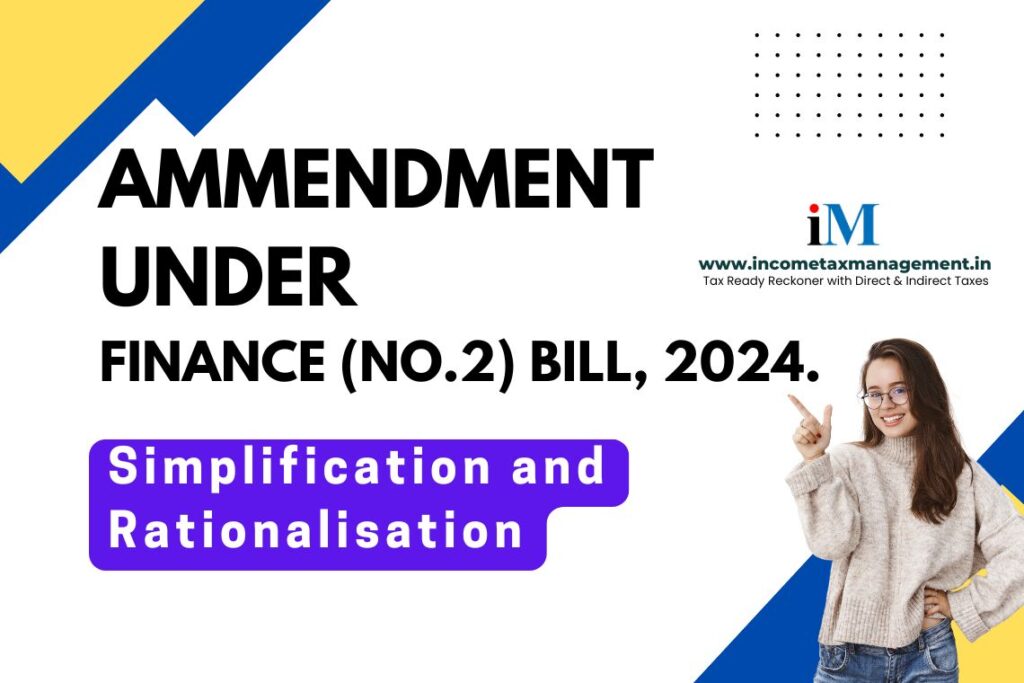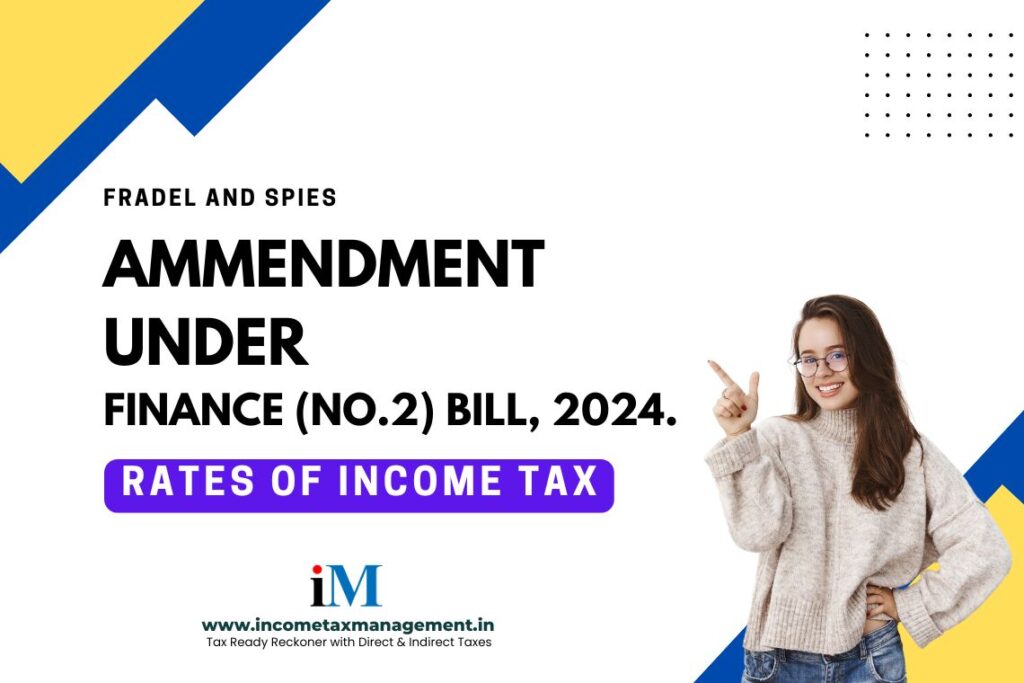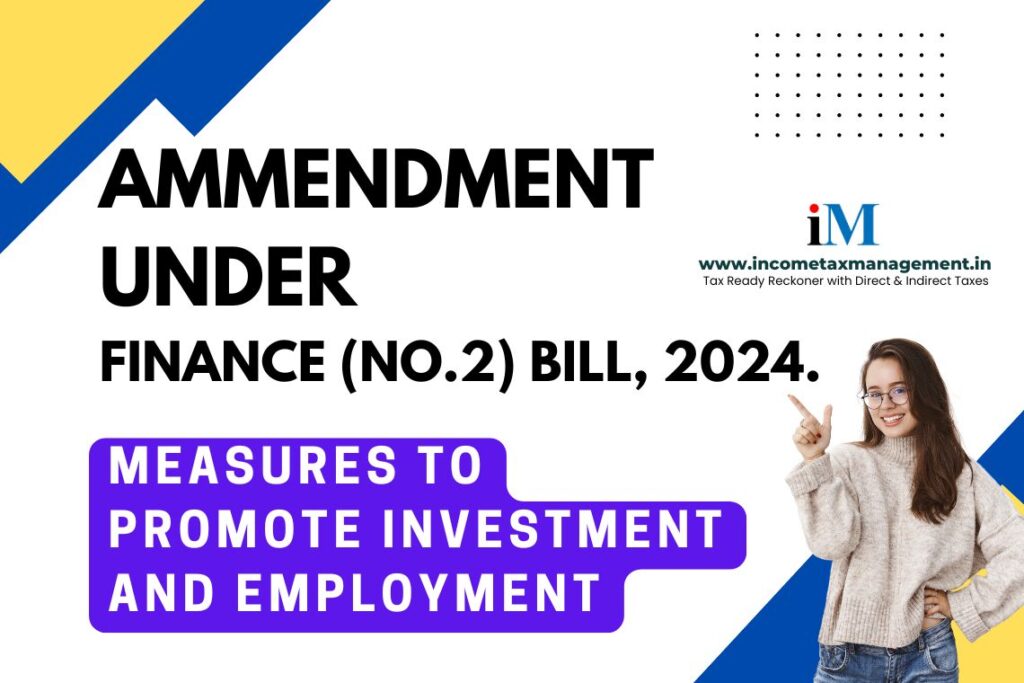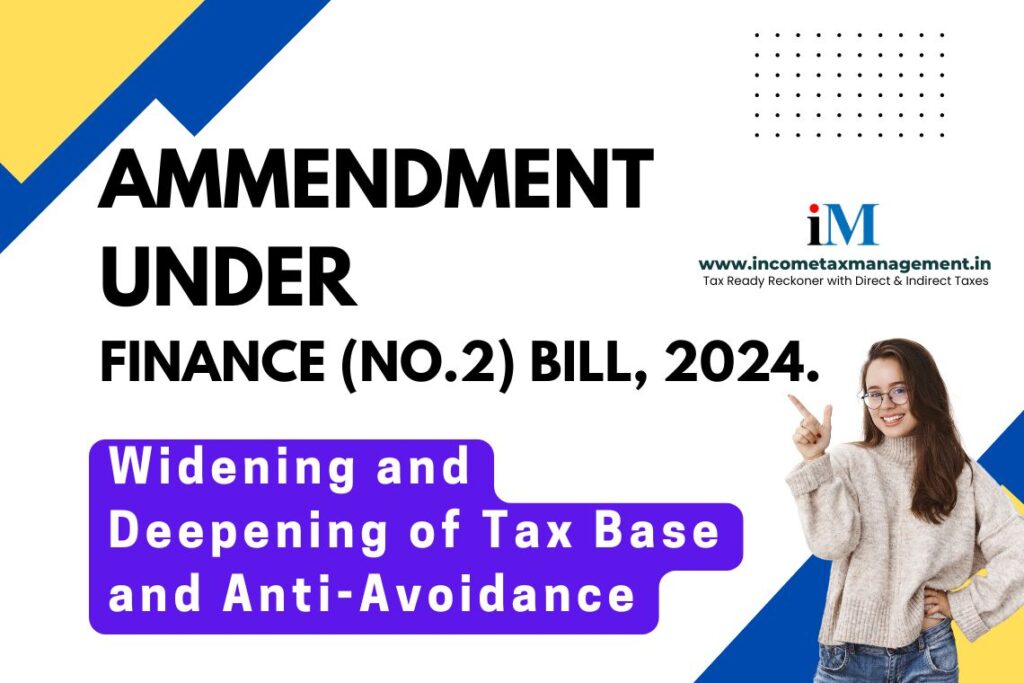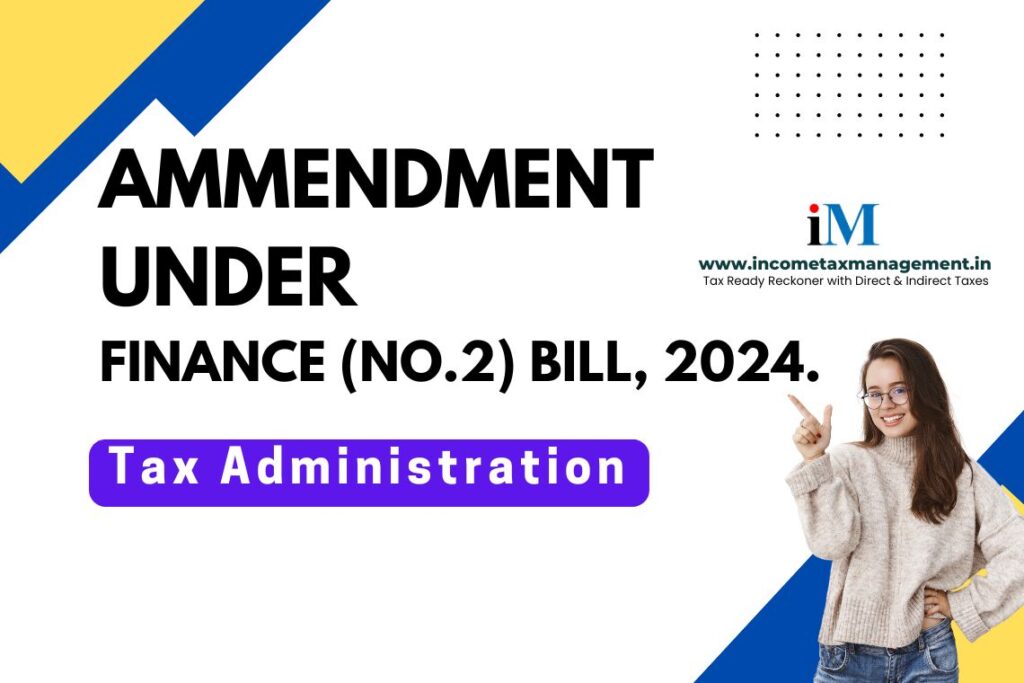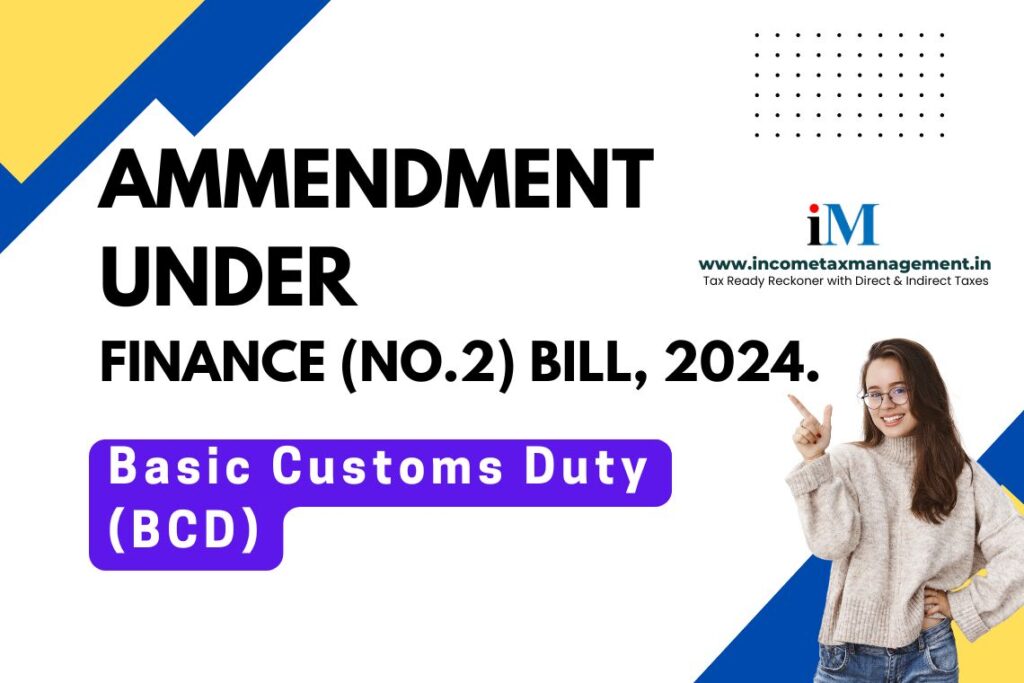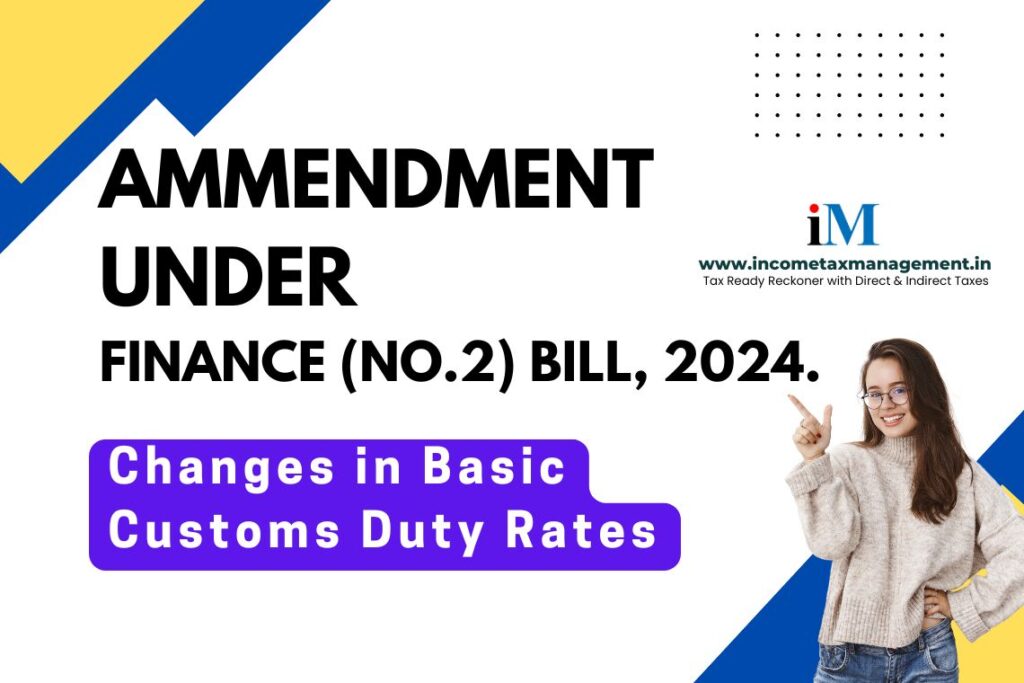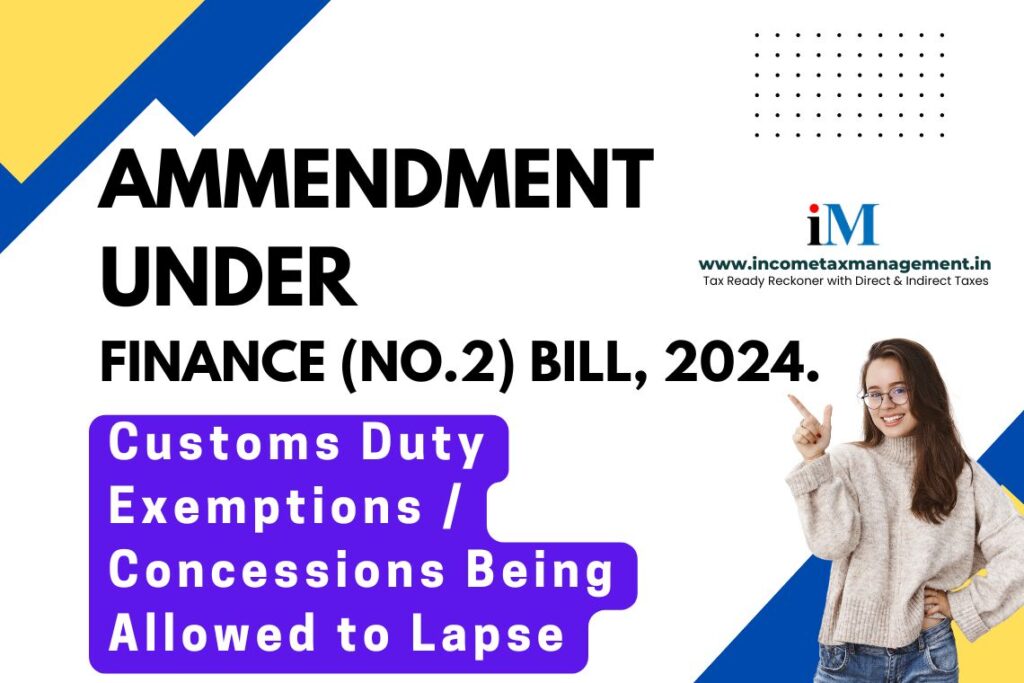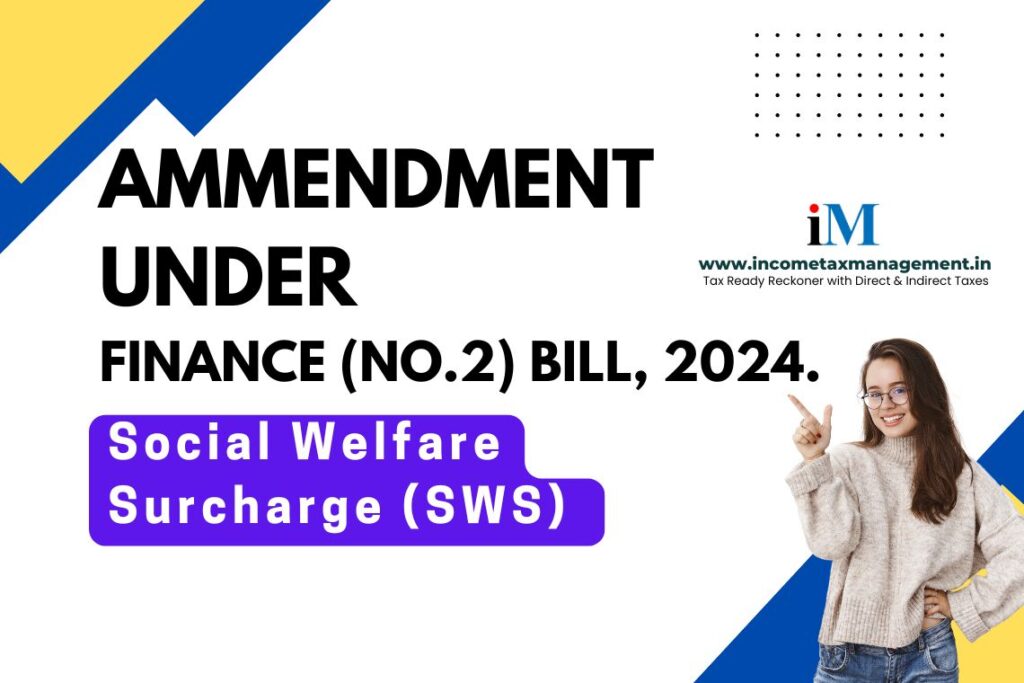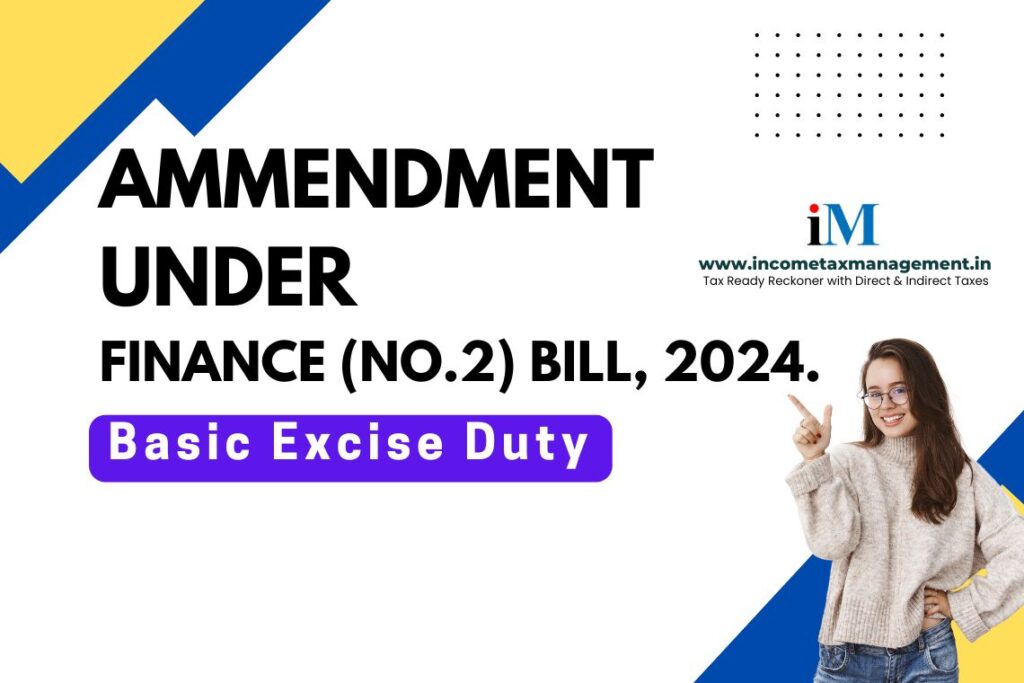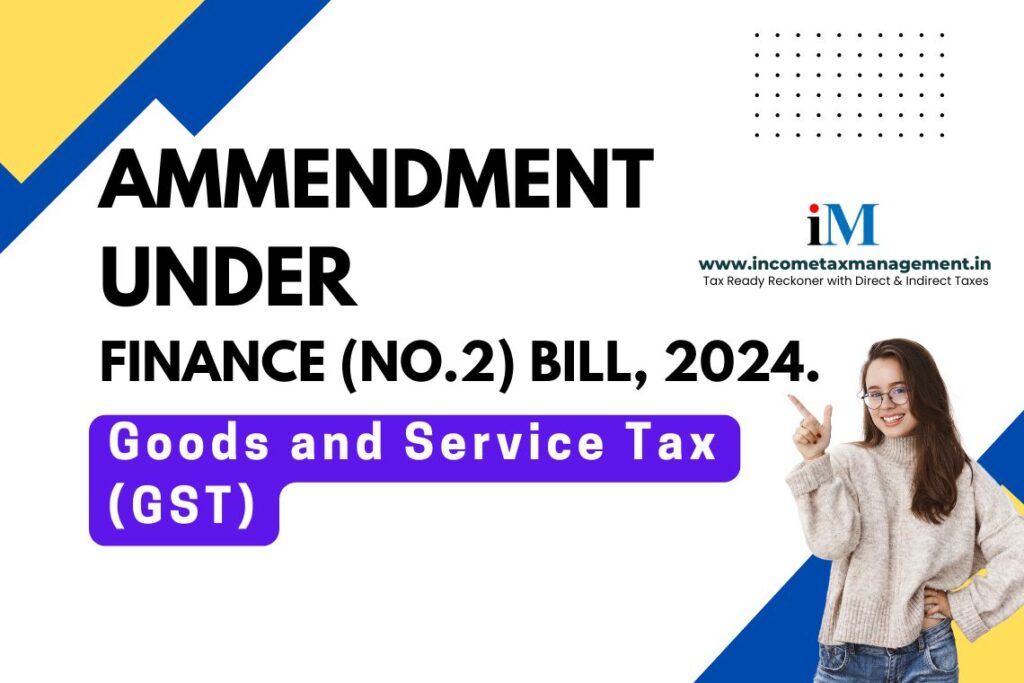1. Introduction of Block Assessment Provisions in cases of Search under Section 132 and Requisition under Section 132A
Vide Finance Act, 2021 the provisions of section 153A and section 153C of the Act were amended to provide that the said provision shall only apply to search and seizure proceedings under section 132 or requisition under section 132A of the Act initiated on or before 31.03.2021. The separate regime for search assessments was abolished and such assessments were subsumed into the reassessment provisions. Further, sections 147, 148, 149, 151 and 151A of the Act were also amended to provide that in case of search, survey or requisition initiated or conducted on or after the 1st April, 2021, it shall be deemed that the Assessing Officer (AO) has information which suggests that the income chargeable to tax has escaped assessment in the case of the assessee for the three assessment years immediately preceding the assessment year relevant to the previous year in which the search is initiated or requisition is made or any material is seized or requisitioned. Further, if the AO has information which suggests that the income escaping assessment, represented in the form of asset, amounts to or is likely to amount to fifty lakh rupees or more, notice under section 148 can be issued if ten years have not elapsed from the end of the relevant assessment year.
2. Searches conducted by the Income-tax Department are important means for unearthing black money. However, it has been gathered from the field formations that there are multiple problems that are arising under the present scheme of search assessment under section 148 of the Act. The absence of any legal requirement for consolidated assessments in search cases has led to a situation where every year only the time-barring year is reopened in the case of the searched assessee. This results in staggered search assessments for the same search and consequentially, the searched assessee may be engaged in the search assessment process for almost up to ten years. This is time-consuming process which escalates the litigation cost for the taxpayer as well as for the department. For the duration of such period, legal position on an issue may undergo change, leading to different additions in different years, on the same issue. Moreover, since such a long duration is involved, there is a possibility of change of opinion with respect to the line of enquiry. Further, due to such staggered assessments, coordinated investigation is not feasible in search cases.
3. In order to make the procedure of assessment of search cases cost- effective, efficient and meaningful, it is proposed to introduce the scheme of block assessment for the cases in which search under section 132 or requisition under section 132A has been initiated or made. The main objectives for the introduction of this scheme are early finalization of search assessments, coordinated investigation during search assessments and reduction in multiplicity of proceedings.
3.1 It is proposed to amend the provisions of Chapter XIV-B of the Act, to provide the following for assessment of search cases:
(i) Where on or after the 1st day of September, 2024, a search is initiated under section 132, or books of account, other documents or any assets are requisitioned under section 132A, in the case of any person, the Assessing Officer shall proceed to assess or reassess the total income of such person in accordance with the provisions of the said Chapter.
(ii) The ‘block period’ shall consist of previous years relevant to six assessment years preceding the previous year in which the search was initiated under section 132 or any requisition was made under section 132A and shall include the period starting from the 1st of April of the previous year in which search was initiated or requisition was made and ending on the date of the execution of the last of the authorisations for such search or date of such requisition.
(iii) Regular assessments for the block period shall abate. There will be one consolidated assessment for the block period. Till block assessment is complete, no further assessment/reassessment proceeding shall take place in respect of the period covered in the block.
(iv) The Assessing Officer shall assess the ‘total income’ of the assessee, including the undisclosed income which shall include any money, bullion, jewellery or other valuable article or thing or any expenditure or any income based on any entry in the books of account or other documents or transactions, where such money, bullion, jewellery, valuable article, thing, entry in the books of account or other document or transaction represents wholly or partly income or property which has not been or would not have been disclosed for the purposes of this Act, or any expense, deduction or allowance claimed under this Act which is found to be incorrect.
(v) The undisclosed income falling within the block period, forming part of the total income, shall be computed in accordance with the provisions of this Act, on the basis of evidence found as a result of search or survey in consequence of such search or requisition of books of account or other documents and such other materials or information as are either available with the Assessing Officer or come to his notice by any means during the course of proceedings under the said Chapter.
(vi) The assessment in respect of any other person shall be governed by the provisions of section 158BD, which provides that where the Assessing Officer is satisfied that any undisclosed income belongs to or pertains to or relates to any person, other than the person with respect to whom search was made or whose books of account or other documents or any assets were requisitioned, then, any money, bullion, jewellery or other valuable article or thing, or assets, or expenditure, or books of account, other documents, or any information contained therein, seized or requisitioned shall be handed over to the Assessing Officer having jurisdiction over such other person and that Assessing Officer shall proceed under section 158BC against such other person and the provisions of the said Chapter shall apply accordingly.
(vii) The tax shall be charged at sixty per cent for the block period, as per section 113 of the Act. The proviso to section 113 has been amended to provide that the tax chargeable under this section shall be increased by a surcharge, if any, which may be levied by any Central Act. However, presently, no surcharge is proposed for income chargeable to tax for the block period. No interest under the provisions of section 234A, 234B or 234C or penalty under the provisions of section 270A shall be levied or imposed upon the assessee in respect of the undisclosed income assessed or reassessed for the block period.
(viii) Penalty on the undisclosed income of the block period as determined by the Assessing officer shall be levied at fifty per cent of the tax payable on such income. No such penalty shall be levied if the assessee offers undisclosed income in the return furnished in pursuance of search and pays the tax along with the return.
(ix) The time-limit for completion of block assessment of the searched assessee shall be twelve months from the end of the month in which the last of the authorisations for search under section 132, or requisition under section 132A, was executed or made. The time-limit for completion of block assessment of any other person shall be twelve months from the end of the month in which the notice under section 158BC in pursuance of section 158BD, was issued to such other person. However, an exclusion of nearly six months shall be available in respect of period from date of search to the date of handing over of seized material to the Assessing Officer.
(x) Where any evidence found as a result of search or requisition relates to any international transaction or specified domestic transaction referred to in section 92CA, pertaining to the period beginning from the 1st day of April of the previous year in which last of the authorisations was executed and ending with the date on which last of the authorisations was executed, such evidence shall not be considered for the purposes of determining the total income of the block period and such income shall be considered in the assessment made under the other provisions of this Act.
(xi) The notice under clause (a) of sub-section (1) of section 158BC requiring the searched assessee to furnish his return of income for the block period, as well as the order of assessment for the block period shall be issued or passed, as the case may be, with the previous approval of the Additional Commissioner or the Additional Director or the Joint Commissioner or the Joint Director.
(xii) The provisions of section 144C of the Act shall not apply to any proceeding under the said Chapter.
4. This amendment will take effect from the 1st day of September, 2024.
[Clauses 32, 43, 49, 76 & 85]
2. Rationalisation of Provisions relating to Assessment and Reassessment under the Act
The Finance Act, 2021 amended the procedure for assessment or reassessment of income in the Act with effect from the 1st April, 2021. The said amendment modified, inter alia, section 148, section 149 and also introduced a new section 148A in the Act.
2. The existing provisions of section 148 of the Act provide the procedure for issuance of notice to initiate assessment or reassessment or recomputation under section 147 of the Act. The existing provisions of the said section also provide details of what constitutes ‘information’ for the purposes of issuance of notice. The said section further provides the instances in which the Assessing Officer (AO) would be deemed to have information in order to initiate the assessment or reassessment proceedings.
3. The existing provisions of section 148A of the Act provide the procedure to be followed by AO before issuance of notice under section 148 of the Act, including conducting inquiry, providing an opportunity of being heard to the assessee, and passing an order prior to reopening of a case. The said section also provides the circumstances in which such procedure does not apply.
4. Further, the existing provisions of section 149 of the Act provide the time limits for issuance of notice under section 148 and computation of the period of limitation under various circumstances. Furthermore, the existing provisions of section 151 of the Act mandates to obtain sanction from the specified authority, for issuance of notice under section 148 or section 148A of the Act.
5. In this regard, multiple suggestions have been received regarding the considerable litigation at various fora arising from the multiple interpretations of the provisions of aforementioned sections. Further, representations have been received to reduce the time-limit for issuance of notice for the relevant assessment year in proceedings of assessment, reassessment or recomputation.
6. Hence, it is proposed to rationalize the aforementioned reassessment provisions. It is expected that the new system would provide ease of doing business to taxpayers as there is a reduction in time limit by which a notice for assessment or reassessment or re-computation can be issued. The salient features of the proposed amendments are as follows:-
(i) It is proposed to substitute section 148 of the Act so as to provide that before making the assessment, reassessment or recomputation under section 147 and subject to the provisions of section 148A, the Assessing Officer shall issue a notice to the assessee, along with a copy of the order passed under sub-section (3) of section 148A determining it to be a fit case, requiring him to furnish within such period as may be specified, not exceeding a period of three months from the end of the month in which such notice is issued, a return of his income or the income of any other person in respect of whom he is assessable under this Act. Further, it is proposed to provide that no notice under this section shall be issued unless there is information with the Assessing Officer which suggests that the income chargeable to tax has escaped assessment in the case of the assessee for the relevant assessment year.
Any information in the case of the assessee emanating from survey conducted under section 133A, other than under sub-section (2A) of the said section, on or after the 1st day of September, 2024, is proposed to be added to the definition of ‘information’ with the Assessing Officer which suggests that the income chargeable to tax has escaped assessment.
It is further proposed to provide that where the Assessing Officer has received information under the scheme notified under section 135A, no notice under section 148 shall be issued without prior approval of the specified authority.
(ii) It is further proposed to substitute the section 148A so as to provide that where the Assessing Officer has information which suggests that income chargeable to tax has escaped assessment in the case of an assessee for the relevant assessment year, he shall, before issuing any notice under section 148, provide an opportunity of being heard to such assessee, by serving upon him a notice to show cause as to why a notice under section 148 should not be issued in his case, and such notice shall be accompanied by the information which suggests that income chargeable to tax has escaped assessment in his case for the relevant assessment year. Thereafter, on receipt of notice under sub-section (1), the assessee may furnish his reply, within such time, as may be specified in such notice.
The Assessing Officer shall, on the basis of material available on record and taking into account the reply of the assessee furnished under sub- section (2), if any, pass an order with the prior approval of the specified authority under sub-section (3) of section 148A, determining whether or not it is a fit case to issue notice under section 148.
It is further proposed that the provisions of this section shall not apply in the case of an assessee where the Assessing Officer has received information under the scheme notified under section 135A pertaining to income chargeable to tax escaping assessment for any assessment year in his case.
(iii) The time limitation for issuance of notice under section 148A and section 148 of the Act is proposed to be provided in section 149 of the Act as follows:
in normal cases, no notice under sections 148A shall be issued if three years have elapsed from the end of the relevant assessment year. Notice beyond the period of three years from the end of the relevant assessment year can be taken only in a few specific cases;
in normal cases, no notice under section 148 shall be issued if three years and three months have elapsed from the end of the relevant assessment year. Notice beyond the period of three years and three months from the end of the relevant assessment year can be taken only in a few specific cases;
in specific cases, where as per the information with the Assessing Officer, the income escaping assessment amounts to or is likely to amount to fifty lakh rupees or more, notice under section 148A can be issued beyond the period of three years but not beyond the period of five years from the end of the relevant assessment year;
in specific cases, where the Assessing Officer has in his possession books of account or other documents or evidence related to any asset or expenditure or transaction or entry (or entries) which reveal that the income chargeable to tax, which has escaped assessment amounts to or is likely to amount to fifty lakh rupees or more, notice under section 148 can be issued beyond the period of three years and three months but not beyond the period of five years and three months from the end of the relevant assessment year.
(iv) It is proposed to substitute the section 151 so as to provide that specified authority for the purposes of sections 148 and 148A shall be the Additional Commissioner or the Additional Director or the Joint Commissioner or the Joint Director.
(v) It is proposed to amend the section 152 of the Act so as to provide that where a search has been initiated under section 132 or requisition is made under section 132A or a survey is conducted under section 133A [other than under sub-section (2A)] on or after the 1st day of April, 2021 but before the 1st day of September, 2024, the provisions of section 147 to 151 shall apply as they stood immediately before the commencement of the Finance (No. 2) Act, 2024.
(vi) It is also proposed to amend the section 152 of the Act so as to provide that where a notice under section 148 has been issued or an order under clause(d) of section 148A has been passed, prior to the 1st day of September, 2024, the assessment, reassessment or precomputation in such case shall be governed as per the provisions of sections 147 to 151, as they stood prior to their amendment by Finance (No. 2) Act, 2024.
7. This amendment will take effect from the 1st day of September, 2024.
[Clauses 44, 45, 46 & 47]
3. Rationalisation of provisions relating to period of limitation for imposing penalties
Section 275 of the Act provides for the period of limitation for imposing penalties. Sub-section (1) of the said section, inter-alia, states that no order imposing a penalty shall be made in a case where the relevant assessment order or other order is the subject-matter of an appeal before the Joint Commissioner (Appeals) or the Commissioner (Appeals) under section 246 or section 246A, respectively, or before the Appellate Tribunal (ITAT) under section 253, after the expiry of the financial year in which the proceedings, in the course of which action for the imposition of penalty has been initiated, are completed, or six months from the end of the month in which the order of the JCIT(A) or the CIT(A) or, as the case may be, the Appellate Tribunal is received by the Principal Chief Commissioner or Chief Commissioner or Principal Commissioner or Commissioner, whichever period expires later. Similarly, at three other places in the said section, for the purposes of limitation, the date of receipt of order passed by appellate authority is given as, ‘date of receipt of order in the office of Principal Chief Commissioner or Chief Commissioner or Principal Commissioner or Commissioner’.
2. Suggestions have been received from the field formations that the reference to the office of Principal Chief Commissioner of Income-tax, Chief Commissioner of Income-tax and Principal Commissioner of Income-tax poses ambiguity for the purposes of calculation of the number of days for imposition of penalties as a consequence of the orders referred to in the said section. Therefore, it is proposed to amend section 275 of the Act to omit the reference to the date of receipt of order by the Principal Chief Commissioner or Chief Commissioner.
3. This amendment will take effect from the 1st day of October, 2024.
[Clause 83]
4. Amendment in provisions relating to set off and withholding of refunds
Section 245 of the Act relates to set off and withholding of refund in certain cases. The Finance Act, 2023 has integrated section 241A and section 245 (as they existed prior to their amendment) into a single provision of section 245 of the Act. Presently, section 245 of the Act empowers the Assessing Officer (AO) to adjust the refund (or a part of the refund) against any tax demand that is outstanding from the taxpayer. Further, where refund becomes due to a person but the assessment or reassessment proceeding is pending in his case, then, the Assessing Officer may, with the approval of the Principal Commissioner of Income-tax or Commissioner of Income-tax, withhold the refund till the date on which such assessment or reassessment is completed. Moreover, no additional interest on refund under section 244A of the Act is payable to the assessee for the period beginning from the date on which such refund is withheld and ending with the date on which assessment/reassessment is made.
2. Sub-section (2) of section 245 of the Act provides that where a part of the refund is set off under the provisions of sub-section (1), or where no such amount is set off, and refund becomes due to a person and the Assessing Officer having regard to the fact that proceedings for assessment or re-assessment are pending in the case of such person, is of the opinion that the grant of refund is likely to adversely affect the revenue, he may, for reasons to be recorded in writing and with the previous approval of the Principal Commissioner of Income-tax or Commissioner of Income-tax, withhold the refund up to the date on which such assessment or reassessment is made.
3. From the bare reading of the provision, it is seen that there are two requirements which the Assessing Officer is supposed to fulfill. One is that he should form opinion that the grant of refund is likely to adversely affect the revenue and the second is that he has to record the reasons in writing for withholding the refund. The second condition of recording of reasons takes care of the first condition as even if an opinion is formed, it has been expressed in terms of reasons recorded in writing. Thus, for the phrase “is of the opinion that the grant of refund is likely to adversely affect the revenue”, the phrase “he may, for reasons to be recorded in writing and with the previous approval of the Principal Commissioner of Income-tax or Commissioner of Income-tax” is proposed to be retained. Further, the period of withholding the refund ‘up to the date of assessment’ is inadequate as the demand itself becomes due after thirty days of the date of assessment. Hence, the period of withholding of the refund is proposed to be extended up to sixty days from the date on which such assessment or reassessment is made.
4. Consequential amendment is also required in section 244A of the Act to allow non-payment of additional interest up to the date till which such refund is withheld under the provisions of sub-section (2) of section 245 of the Act.
5. This amendment will take effect from the 1st day of October, 2024.
[Clause 72 & 73]
5. Rationalisation of the time-limit for filing appeals to the Income Tax Appellate Tribunal
Section 253 of the Act lays down the provisions for filing an appeal with the Income Tax Appellate Tribunal (ITAT) against an order passed by the Joint Commissioner of Income-tax (Appeals), Commissioner of Income-tax (Appeals) [CIT(Appeals)], the Principal Chief Commissioner of Income-tax, the Chief Commissioner of Income-tax, the Principal Commissioner of Income-tax, or the Commissioner of Income-tax. The ITAT is the second appellate authority in the income-tax appellate hierarchy.
2. The sub-section (1) of the said section details the types of orders passed under various sections of the Act against which an aggrieved assessee may appeal to the Appellate Tribunal. Clause (a) of the said sub-section provides that any assessee aggrieved by any order passed by a Deputy Commissioner (Appeals) before the 1st day of October, 1998 or, as the case may be, a Commissioner (Appeals) under section 154, section 250, section 270A, section 271, section 271A, section 271AAB, section 271AAC, section 271AAD, section 271J or section 272A may appeal to the Appellate Tribunal.
2.1 Section 158BFA of the Act is an interest and penalty provision under Chapter XIV-B of the Act for imposition of penalty on undisclosed income for the block period in a case where search has been initiated under section 132 of the Act. However, as the reference to the same has not been inserted in sub-section (1) of section 253 of the Act, an aggrieved assessee cannot appeal against such penalty orders passed by Commissioner (Appeals). Accordingly, it is proposed to amend clause (a) of sub- section (1) of section 253 to include the reference of section 158BFA therein
3. As per the provisions of sub-section (3) of the said section, appeals to the ITAT are to be filed ‘within sixty days of the date on which the order sought to be appealed against is communicated to the assessee or to the PCIT/CIT, as the case may be’. Appeals to the ITAT are generated mainly by orders passed by the CIT (Appeals), which is now through ITBA. In the new Faceless Appeal dispensation, the CIT (Appeals) upload the orders on a day-to-day basis rather than the erstwhile practice of sending a monthly/fortnightly ‘bunch’ of orders to the jurisdictional PCIT. Such an upload amounts to electronic communication to the PCIT. This, in turn, means that the limitation for filing appeal to the ITAT would fall on a daily basis making it difficult for the PCIT and the Assessing Officer to track the same.
4. In view of the foregoing, it is proposed to amend sub-section (3) of section 253 to provide that the appeal before the ITAT may be filed within two months from the end of the month in which the order sought to be appealed against is communicated to the assessee or to the Principal Commissioner or Commissioner, as the case may be.
5. This amendment will take effect from the 1st day of October, 2024.
[Clause 78]
6. Rationalisation of the provisions of Charitable Trusts and Institutions
(1). Merger of trusts under first regime with second regime
The Act puts in place two main regimes for trusts or funds or institutions to claim exemption. The first is contained in the provisions of sub-clause(s) (iv), (v), (vi) or (via) of clause (23C) of section 10. The second is contained in the provisions of sections 11 to 13 of the Act. The provisions of the respective regimes lay down the procedure for filing application for approval/ registration, the conditions subject to which such approval/ registration shall be granted or can be withdrawn etc.
2. As both the regimes intend to grant similar benefit, the procedure and conditions across the two regimes have been aligned, over the last few years, vide successive Finance Acts.
3. In order to take forward the process of simplification of procedures and to reduce administrative burden, it is proposed that the first regime be sunset and trusts, funds or institutions be transited to the second regime in a gradual manner.
4. It is, therefore, proposed that:
- Applications seeking approval or provisional approval under sub-clauses (iv), (v), (vi) or (via) of clause (23C) of section 10, and filed on or after 1st October, 2024, shall not be considered.
- Applications filed under these sub-clauses before 1st October, 2024, and which are pending would be processed and considered under the extant provisions of the first regime itself.
- Approved trusts, funds or institutions would continue to get the benefit of exemption, as per the provisions of sub-clauses (iv), (v), (vi) or (via) of clause (23C) of section 10, till the validity of the said approval.
- They would be eligible to apply for registration, subsequently, under the second regime. Amendments have accordingly been proposed in section 12A.
- Certain eligible modes of investment, under the first regime (viz.those specified in clause (b) of third proviso to clause (23C) of section 10) shall be protected in the second regime, by way of amendment in section 13.
5. These amendments will take effect from the 1st day of October, 2024.
[Clauses 4, 6 & 9]
(2). Condonation of delay in filing application for registration by trusts or institutions
A trust or institution desirous of seeking registration under section 12AB is inter alia required to apply within timelines specified in clause (ac) of sub-section (1) of section 12A.
2. It has been noted that at times trusts or institutions are unable to file application within specified timelines. In case a trust or institution is unable to apply within time specified, it may become liable to tax on accreted income as per provisions of Chapter XII-EB of the Act. A situation of permanent exit of trust or institution from the exemption regime may also arise.
3. It is proposed that the Principal Commissioner/ Commissioner may be enabled to condone the delay in filing application and treat such application as filed within time. The delay may be condoned if he considers that there is a reasonable cause for the same.
4. These amendments will take effect from the 1st day of October, 2024.
[Clause 6]
(3). Rationalisation of timelines for funds or institutions to file applications seeking approval under section 80G
Section 80G of the Act, inter alia, provides for the grant of approval to certain funds or institutions for receiving donation. Deduction is available for donations to approved funds or institutions, in the hands of the assessee making such donations.
2. The first proviso to sub-section (5) of section 80G provides timelines for filing application for approval, for funds or institutions referred to in sub-clause (iv) of clause (a) of sub-section (2) of section 80G. The second proviso lays down the procedure for processing the same. It has been noted that at times funds or institutions are unable to file application within specified timelines. A situation of unintended permanent exit of fund or institution from section 80G approval may also arise.
3. It is proposed to amend the first and second provisos to rationalise the timelines for filing applications for approval.
4. These amendments will take effect from the 1st day of October, 2024.
[Clause 26]
(4). Rationalisation of timelines for disposing applications made by trusts or funds or institutions, seeking registration for exemption under section 12AB or approval under section 80G
Applications seeking registration under section 12AB, filed by trusts or institutions, are required to be processed by the Principal Commissioner or Commissioner within a period of six months from the end of the month in which the application was received.
2. Similarly, the applications of funds or institutions referred to in sub-clause (iv) of clause (a) of sub-section (2) of section 80G, seeking approval are required to be processed by the Principal Commissioner or Commissioner within a period of six months from the end of the month in which the application was received.
3. For better administration and monitoring, it is proposed to rationalise timelines for disposing applications made by trusts or funds or institutions to six months from the end of the quarter in which the application was received.
4. Thus, where provisionally registered/ approved trusts or funds or institutions apply for registration/ approval or where registered/ approved trusts or funds or institutions apply for further registration/ approval under section 12AB or section 80G, as the case may be, the order granting registration/ rejecting application shall be passed before expiry of the period of six months from the end of the quarter in which the application was received.
5. These amendments will take effect from the 1st day of October, 2024.
[Clause 7 & 26]
(5). Merger of trusts under the exemption regime with other trusts
When a trust or institution which is approved / registered under the first or second regime, as the case may be merges with another approved / registered entity under either regime, it may attract the provisions of Chapter XII-EB, relating to tax on accreted income in certain circumstances.
2. It is proposed that conditions under which the said merger shall not attract provisions of Chapter XII-EB, may be prescribed, to provide greater clarity and certainty to taxpayers. A new section 12AC is proposed to be inserted for this purpose.
3. These amendments will take effect from the 1st day of April, 2025.
[Clause 8]
(6). Inclusion of reference of clause (23EA), clause (23ED) and clause (46B) of section 10 in sub-section (7) of section 11
Sub-section (7) of section 11 of the Act lays down that registration under section 12AB shall become inoperative, if the trust or institution is approved / notified under clause (23C), (23EC), (46) or (46A) of section 10. Such trust or institution has a one-time option to apply to make its registration under section 12AB operative. Thus, a trust or institution may choose the provisions under which it seeks to claim exemption.
2. It is proposed to amend sub-section (7) of section 11 of the Act to include reference of clause (23EA), clause (23ED) and clause (46B) of section 10 of the Act, to enable trusts under the second regime to claim exemption under the above-noted specific clauses of section 10.
3. These amendments will take effect from the 1st day of April, 2025.
[Clause 5]
(7). Rationalisation and Simplification of taxation of Capital Gains
The taxation of capital gains is proposed to be rationalized and simplified. There are three components to this simplification. Firstly, it is proposed that there will only be two holding periods, 12 months and 24 months, for determining whether the capital gains is short-term capital gains or long term capital gains. For all listed securities, the holding period is proposed to be 12 months and for all other assets, it shall be 24 months. Accordingly, amendment is proposed in clause (42A) of section 2 of the Act. Thus units of listed business trust will now be at par with listed equity shares at 12 months instead of earlier 36 months. The holding period for bonds, debentures, gold will reduce from 36 months to 24 months. For unlisted shares and immovable property it shall remain at 24 months.
2. Secondly, the rate for short-term capital gain under provisions of section 111A of the Act on STT paid equity shares, units of equity oriented mutual fund and unit of a business trust is proposed to be increased to 20% from the present rate of 15% as the present rate is too low and the benefit from such low rate is flowing largely to high net worth individuals. Other short-term capital gains shall continue to be taxed at applicable rate.
2.1 The rate of long-term capital gains under provisions of various sections of the Act is proposed to be 12.5% in respect of all category of assets. This rate earlier was 10% for STT paid listed equity shares, units of equity-oriented fund and business trust under section 112A and for other assets it was 20% with indexation under section 112. However, an exemption of gains upto 1.25 lakh (aggregate) is proposed for long-term capital gains under section 112A on STT paid equity shares, units of equity oriented fund and business trust, thus, increasing the previously available exemption which was upto 1 lakh of income from long term capital gains on such assets. For bonds and debentures, rate for taxation of long-term capital gains was 20% without indexation. For listed bonds and debentures, the rate shall be reduced to 12.5%. Unlisted debentures and unlisted bonds are of the nature of debt instruments and therefore any capital gains on them should be taxed at applicable rate, whether short-term or long-term. It is proposed accordingly.
2.2 Thus, unlisted debentures and unlisted bonds are proposed to be brought to tax at applicable rates by including them under provisions of section 50AA of the Act. This amendment in section 50AA shall come into effect from the 23rd day of July, 2024.
3. Thirdly, simultaneously with rationalisation of rate to 12.5%, indexation available under second proviso to section 48 is proposed to be removed for calculation of any long-term capital gains which is presently available for property, gold and other unlisted assets. This will ease computation of capital gains for the taxpayer and the tax administration.
4. Parity in taxation between resident and non-resident assesses: To bring parity of taxation between residents and non-residents, corresponding amendments to section 115AD, 115AB, 115AC, 115ACA and 115E are being made to align the rates of taxation in respect of long-term capital gains proposed under section 112A and 112 and rates of short term capital gains proposed under section 111A.
5. Further, consequential amendments to align the withholding tax provisions with the substantive provisions to give effect to the proposed changes in rates of capital gains tax are being made under section 196B and 196C.
6. These proposals are proposed to be given effect immediately i.e. with effect from the 23rd of July, 2024.
[Clauses 3, 20, 21, 29, 30, 31, 33, 34, 35, 36, 38, 63 & 64]
(8). Amendment to definition of Specified Mutual Fund under section 50AA
The Finance Act, 2023 had introduced special taxation regime of deemed short term capital gains taxation for Market Linked Debentures and Specified Mutual Funds by way of introduction of section 50AA of the Act. The gains in such cases were to be taxed as Short-term Capital Gain irrespective of period of holding. The requirement of investment of not more than 35% in equity shares has also impacted other funds which are not debt-oriented funds, but invest below 35% in equity shares. Such funds which are adversely impacted include Exchange Traded Funds (ETFs), Gold Mutual Funds and Gold ETFs. In the case of Fund-of-Funds (FoFs) as well, wherein the underlying fund further invests in other instruments, there is ambiguity as to whether they will be considered Specified Mutual Funds as defined in section 50AA. Thus, a need to re-define the term “Specified Mutual Funds” for the purposes of Section 50AA, to provide clarity regarding the proportion of investment being made in terms of debt and money market instruments, and also to clarify the investment requirements in the case of Fund-of-Funds (FoFs) had arisen. Representations from multiple stakeholders were received seeking clarity and revision. It is thus proposed to amend the definition of “Specified Mutual Fund” under clause (ii) of Explanation of section 50AA to provide that a specified mutual fund shall mean a mutual fund:
(a) a Mutual Fund by whatever name called, which invests more than sixty five per cent of its total proceeds in debt and money market instruments; or
(b) a fund which invests sixty five per cent or more of its total proceeds in units of a fund referred to in sub-clause (a).
The above amendment under clause (ii) of Explanation of section 50AA is proposed to be brought into effect from 1st day of April, 2026 and shall be applicable from AY 2026-27 onwards.
[Clause 21]
(9). Rationalisation of Tax Deducted at Source Rates
There are various provisions of Tax Deduction at Source (TDS) with different thresholds and multiple rates between 0.1%, 1%, 2%, 5%, 10%, 20%, 30% and above. To improve ease of doing business and better compliance by taxpayers, the TDS rates are proposed to be reduced. However, no change would occur with respect to sections such as TDS on salary, TDS on virtual digital assets, TDS on winnings from lottery etc/ race horses, payment on transfer of immovable property and payments to non-residents, TDS rates for TDS on contracts etc.
2. Rationalisation of TDS rates is proposed as below.
| SL No | Section | Present TDS Rate | Proposed TDS Rate | With effect from |
| (i) | Section 194D – Payment of insurance commission (in case of person other than company) | 5% | 2% | 1.4.2025 |
| (ii) | Section 194DA – Payment in respect of life insurance policy | 5% | 2% | 1.10.2024 |
| (iii) | Section 194G – Commission etc on sale of lottery tickets | 5% | 2% | 1.10.2024 |
| (iv) | Section 194H – Payment of commission or brokerage | 5% | 2% | 1.10.2024 |
| (v) | Section 194-IB – Payment of rent by certain individuals or HUF | 5% | 2% | 1.10.2024 |
| (vi) | Section 194M – Payment of certain sums by certain individuals or Hindu undivided family | 5% | 2% | 1.10.2024 |
| (vii) | Section 194-O – Payment of certain sums by e-commerce operator to e-commerce participant | 1% | 0.1% | 1.10.2024 |
| (viii) | Section 194F relating to payments on account of repurchase of units by Mutual Fund or Unit Trust of India | Proposed to be omitted | 1.10.2024 | |
(i) Section 194D – Payment of insurance commission
1. As per provisions of section 194D, any person responsible for paying to a resident any income by way of remuneration or reward, whether by way of commission or otherwise, for soliciting or procuring insurance business (including business relating to the continuance, renewal or revival of policies of insurance) shall, at the time of credit of such income to the account of the payee or at the time of payment thereof in cash or by issue of a cheque or draft or by any other mode, whichever is earlier, deduct income-tax thereon at the rates in force which is at present 5% (in case of person other than company).
2. It is proposed that TDS under section 194D of the Act (in case of person other than company) be reduced from 5% to 2%.
3. The amendment will take effect from 1st day of April 2025.
(ii) Section 194DA – Payment in respect of life insurance policy
As per provisions of section 194DA, any person responsible for paying to a resident any sum under a life insurance policy, including the sum allocated by way of bonus on such policy, other than the amount not includible in the total income under clause (10D) of section 10, shall, at the time of payment thereof, deduct income-tax thereon at the rate of 5% on the amount of income comprised therein.
2. It is proposed that TDS under section 194DA of the Act be reduced from 5% to 2%.
3. The amendment will take effect from 1st day of October 2024.
[Clause 54]
(iii) Section 194G – Commission, etc on sale of lottery tickets
As per provisions of section 194G, any person who is responsible for paying, on or after the 1st day of October, 1991 to any person, who is or has been stocking, distributing, purchasing or selling lottery tickets, any income by way of commission, remuneration or prize (by whatever name called) on such tickets in an amount exceeding fifteen thousand rupees shall, at the time of credit of such income to the account of the payee or at the time of payment of such income in cash or by the issue of a cheque or draft or by any other mode, whichever is earlier, deduct income- tax thereon at the rate of 5%.
2. It is proposed that TDS under section 194G of the Act be reduced from 5% to 2%.
3. The amendment will take effect from 1st day of October 2024.
[Clause 56]
(iv) Section 194H – Payment of commission or brokerage
As per provisions of section 194H, any person, not being an individual or a Hindu undivided family (as specified), who is responsible for paying, on or after the 1st day of June, 2001, to a resident, any income by way of commission (not being
insurance commission referred to in section 194D) or brokerage, shall, at the time of credit of such income to the account of the payee or at the time of payment of such income in cash or by the issue of a cheque or draft or by any other mode, whichever is earlier, deduct income-tax thereon at the rate of 5%.
2. It is proposed that TDS under section 194H of the Act be reduced from 5% to 2%.
3. The amendment will take effect from 1st day of October 2024.
[Clause 57]
(v) Section 194-IB – Payment of rent by certain individuals or HUF
As per provisions of section 194-IB, any person, being an individual or a Hindu undivided family (other than those referred to in the second proviso to section 194-I), responsible for paying to a resident any income by way of rent exceeding fifty thousand rupees for a month or part of a month during the previous year, shall deduct an amount equal to 5% of such income as income-tax thereon.
2. It is proposed that TDS under section 194-IB of the Act be reduced from 5% to 2%.
3. The amendment will take effect from 1st day of October 2024.
[Clause 59]
(vi) Section 194M – Payment of certain sums by certain individuals or Hindu undivided family
Any person, being an individual or a Hindu undivided family (other than those who are required to deduct income-tax as per the provisions of section 194C, section 194H or section 194J) responsible for paying any sum to any resident for carrying out any work (including supply of labour for carrying out any work) in pursuance of a contract, by way of commission (not being insurance commission referred to in section 194D) or brokerage or by way of fees for professional services during the financial year, shall, at the time of credit of such sum or at the time of payment of such sum in cash or by issue of a cheque or draft or by any other mode, whichever is earlier, deduct an amount equal to 5% of such sum as income-tax thereon.
2. It is proposed that TDS under section 194M of the Act be reduced from 5% to 2%.
3. The amendment will take effect from 1st day of October 2024.
[Clause 60]
(vii) Section 194-O – Payment of certain sums by e-commerce operator to e-commerce participant
Section 194-O of the Act provides that notwithstanding anything to the contrary contained in any of the provisions of Chapter XVII-B, where sale of goods or provision of services of an e-commerce participant is facilitated by an e-commerce operator through its digital or electronic facility or platform (by whatever name called), such e-commerce operator shall, at the time of credit of amount of sale or services or both to the account of an e-commerce participant or at the time of payment thereof to such e-commerce participant by any mode, whichever is earlier, deduct income-tax at the rate of 1% of the gross amount of such sales or services or both.
2. However, representations were received that offline transactions attract a lower TDS rate of 0.1% (under section 194Q relating to TDS on payment of certain sums for purchase of goods) or tax collection at source (TCS) rate of 0.1% [under section 206C(1H) relating to TCS on receipts from sale of goods]. To bring parity between these provisions, reduction of the TDS rate under section 194-O from 1% to 0.1% is proposed.
3. The amendment will take effect from 1st day of October 2024.
[Clause 61]
(viii) Section 194F – TDS on payments on repurchase of units by mutual fund or UTI
It is proposed to omit section 194F relating to TDS on payments on repurchase of units by Mutual Fund or UTI which attracts a TDS rate of 20%.
2. The amendment will take effect from 1st day of October 2024.
[Clause 55]
(10). Ease in claiming credit for TCS collected/TDS deducted by salaried employees
Section 192 of the Act provides for deduction of tax at source on salary income. Further, sub-section (2B) of section 192 of the Act provides for consideration of income under any other head and tax, if any, deducted thereon to be taken into account for the purposes of making the deduction under sub- section (1) of the aforesaid section, subject to certain conditions.
2. Representations have been received that credit of TCS paid should be allowed while computing the amount of tax to be deducted on salary income of the employees as this will help in avoiding cash flow issues for employees. Similarly, all TDS may be taken into account for the purpose of deduction of tax from the salary income of employees. Moreover when the TCS etc is not taken into account, the same is required to be claimed as a refund by the employee which adds to the compliance process.
3. In order to ease compliance, it is proposed that sub-section (2B) of section 192 may be amended to expand the scope of the said sub-section to include any tax deducted or collected under the provisions of Chapter XVII-B or Chapter XVII-BB, as the case may be, to be taken into account for the purposes of making the deduction under sub-section (1) of section 192.
4. The amendments will take effect from the 1st day of October, 2024.
[Clause 50]
(11). Alignment of interest rates for late payment to Government account of TCS
Section 206C of the Act provides for the collection of tax at source (TCS) on business of trading in alcoholic liquor, forest produce, scrap etc. Sub-section (7) of the section 206C provides that persons who fail to collect tax or after collecting, fail to deposit the same to the credit of the Central Government shall be liable to pay simple interest at the rate of one percent for every month or part thereof on the amount of such tax from the date on which such tax was collectible to the date on which the tax was paid.
2. It was noted that the rates of interest applicable for late collection / late deposit of TCS are not in line with provisions of sub-section (1A) of section 201 pertaining to late deduction / deposit of TDS. A higher interest rate of 1.5% is applicable where tax has been deducted but not been deposited to Government account due to the gravity attached with the failure, as it deprives the deductee of due tax credit and does not reach the Central Government in time. Same difficulty is also faced by the collectee.
3. To align the rate of simple interest charged on failure to pay to Government account after collection of tax it is proposed to amend sub-section (7) of section 206C, to specify that simple interest for non-payment of tax collected at source to Government account, is to be increased from one per cent. to one and one-half per cent. for every month or part thereof on the amount of such tax from the date on which such tax was collected to the date on which such tax is actually paid.
4. The amendment will take effect from the 1st day of April, 2025.
[Clause 70]
(12). Increase in limit of remuneration to working partners of a firm allowed as deduction
Section 40 of the Act provides for amounts that shall not be deducted in computing the income chargeable under the head “Profits and gains of business or profession”. Sub-clause (v) of clause (b) of the said section provides for disallowance of any payment of remuneration to any partner who is working partner which is authorized by and is in accordance with the terms of the partnership deed and relates to any period falling after the date of such partnership deed in so far as the amount of such payment to all partners during the previous year exceeds the aggregate amount computed as hereunder:
| (a) | on the first Rs. 3,00,000 of the book- profit or in case of a loss | Rs. 1,50,000 or at the rate of 90 per cent of the book- profit, whichever is more; |
| (b) | on the balance of the book-profit | at the rate of 60 per cent : |
2. This limit was put in place on the statute w.e.f AY 2010-11. It is now proposed to amend the limit of remuneration to working partners in a partnership firm, which is allowed as deduction. It is proposed that on the first Rs 6,00,000 of the book-profit or in case of a loss, the limit of remuneration is increased to Rs 3,00,000 or at the rate of 90 per cent of the book-profit, whichever is more as follows:
| (a) | on the first Rs. 6,00,000 of the book- profit or in case of a loss | Rs. 3,00,000 or at the rate of 90 per cent of the book- profit, whichever is more; |
| (b) | on the balance of the book-profit | at the rate of 60 per cent : |
3. The amendments to sub-clause (v) of clause (b) of section 40 of the Act will take effect from the 1st day of April, 2025 and will, accordingly, apply in relation to assessment year 2025-2026 and subsequent years.
[Clause 14]
(13). Claiming credit for TCS of minor in the hands of parent
Section 206C of the Act provides for the collection of tax at source (TCS) on business of trading in alcoholic liquor, forest produce, scrap etc. Representations have been received that there is no provision in the Act for allowing credit of TCS to any other person (eg. parent) other than the collectee.
2. For example, funds remitted under the Liberalized Remittance Scheme of the Reserve Bank of India may have been remitted in the name of minor and accordingly tax would have been collected under sub-section (1G) of section 206C. However, there is no provision for the parent to claim the same in their tax return.
3. It is, therefore, proposed to introduce a provision in section 206C of the Act, to allow the Board to notify the rules for cases where credit of tax collected are given to person other than collectee. However, to ensure that this provision is not misused, credit of TCS of the minor shall only be allowed where the income of the minor is being clubbed with the parent as under sub-section (1A) of section 64 of the Act which states that in computing the total income of any individual, there shall be included all such income as arises or accrues to his minor child.
4. The amendment will take effect from the 1st day of January, 2025.
[Clause 70]

